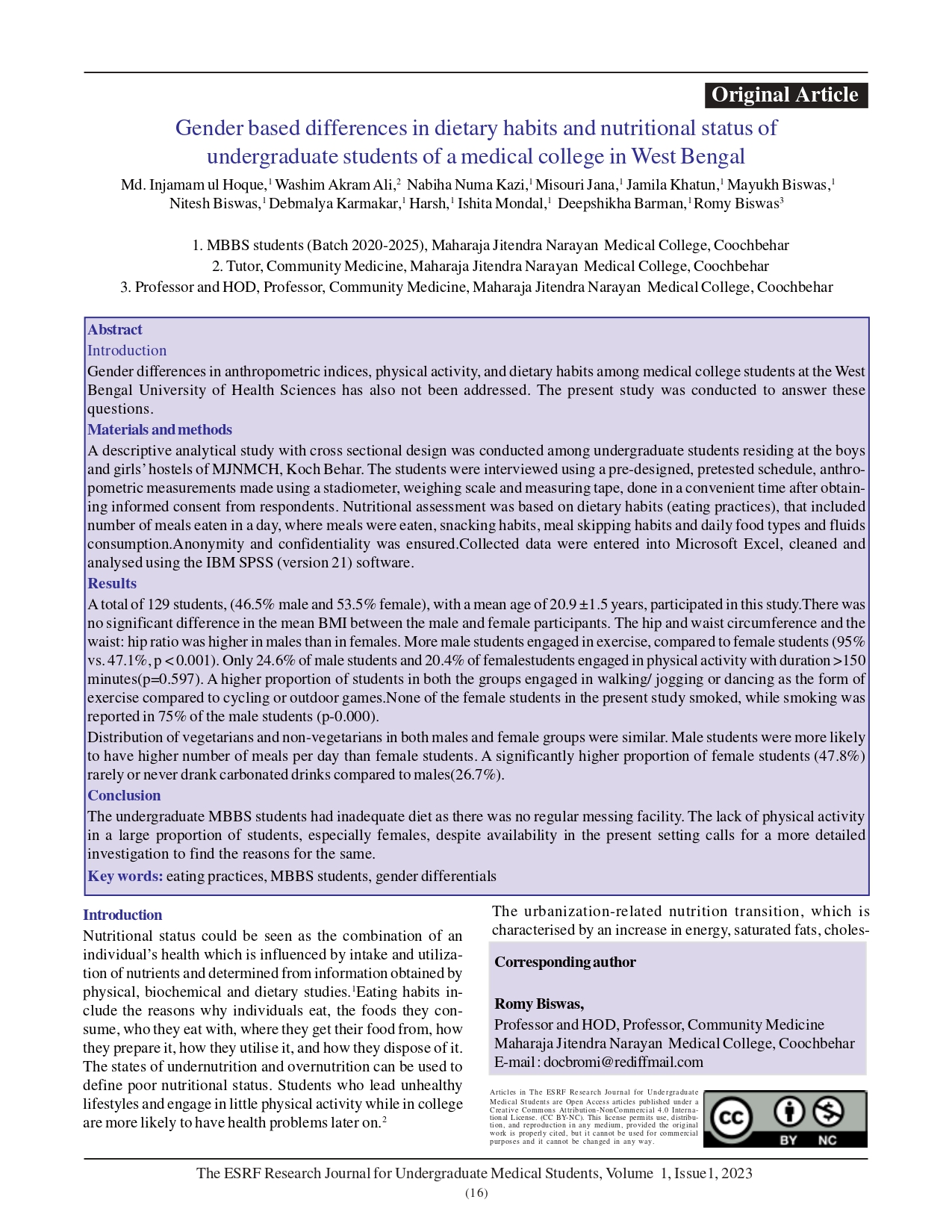Gender based differences in dietary habits and nutritional status of undergraduate students of a medical college in West Bengal
Main Article Content
Abstract
Introduction
Gender differences in anthropometric indices, physical activity, and dietary habits among medical college students at the West
Bengal University of Health Sciences has also not been addressed. The present study was conducted to answer these
questions.
Materials and methods
A descriptive analytical study with cross sectional design was conducted among undergraduate students residing at the boys
and girls’ hostels of MJNMCH, Koch Behar. The students were interviewed using a pre-designed, pretested schedule, anthropometric measurements made using a stadiometer, weighing scale and measuring tape, done in a convenient time after obtaining informed consent from respondents. Nutritional assessment was based on dietary habits (eating practices), that included number of meals eaten in a day, where meals were eaten, snacking habits, meal skipping habits and daily food types and fluids
consumption.Anonymity and confidentiality was ensured.Collected data were entered into Microsoft Excel, cleaned and
analysed using the IBM SPSS (version 21) software.
Results
A total of 129 students, (46.5% male and 53.5% female), with a mean age of 20.9 ±1.5 years, participated in this study.There was
no significant difference in the mean BMI between the male and female participants. The hip and waist circumference and the
waist: hip ratio was higher in males than in females. More male students engaged in exercise, compared to female students (95%
vs. 47.1%, p < 0.001). Only 24.6% of male students and 20.4% of female students engaged in physical activity with a duration >150
minutes(p=0.597). A higher proportion of students in both the groups engaged in walking/ jogging or dancing as the form of
exercise compared to cycling or outdoor games.None of the female students in the present study smoked, while smoking was
reported in 75% of the male students (p-0.000).
Distribution of vegetarians and non-vegetarians in both males and female groups were similar. Male students were more likely
to have higher number of meals per day than female students. A significantly higher proportion of female students (47.8%)
rarely or never drank carbonated drinks compared to males(26.7%).
Conclusion
The undergraduate MBBS students had inadequate diet as there was no regular messing facility. The lack of physical activity
in a large proportion of students, especially females, despite availability in the present setting calls for a more detailed
investigation to find the reasons for the same.
Downloads
Article Details
Section

This work is licensed under a Creative Commons Attribution-NonCommercial 4.0 International License.

This article is licensed under Creative Commons Attribution-NonCommercial 4.0
All terms of the license can be found here

